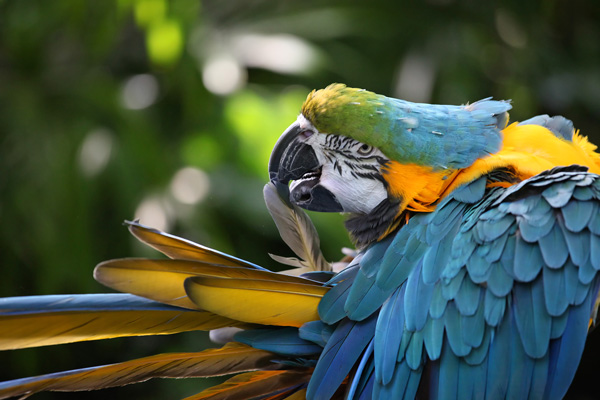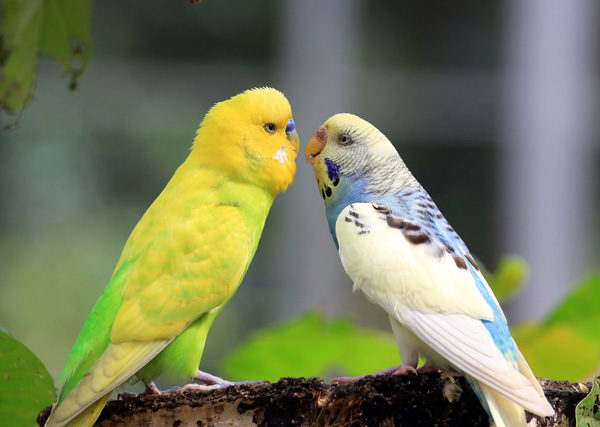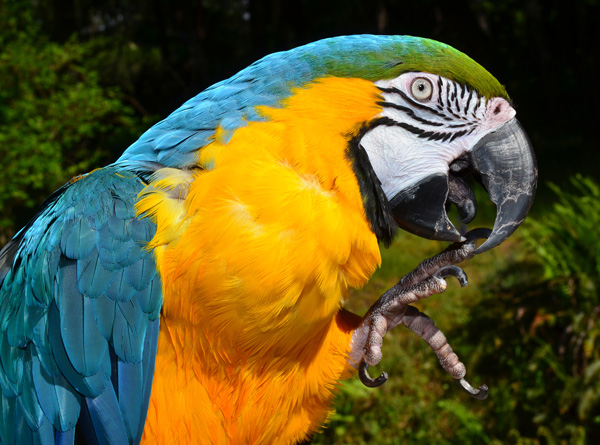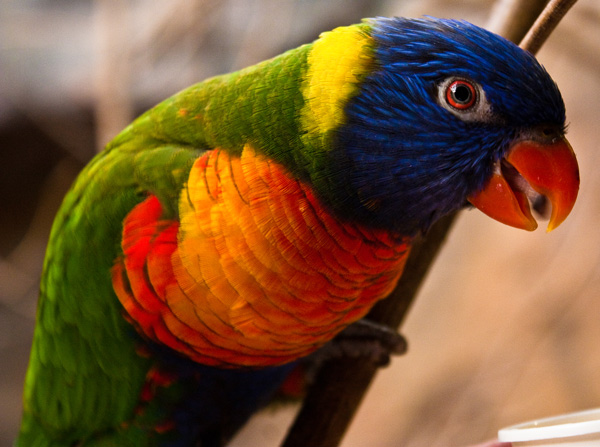
Budgies, cockatiels, parrots, and songbirds tend to live longer, healthier lives when they receive regular veterinary care. We can provide nutritional counseling, health assessments, grooming assistance, sexing, fecal parasite testing, medical and surgical services, and annual physicals. In addition, we’d be happy to discuss general care, disease prevention, safety, appropriate housing and toys, and breeding. We recommend that you bring your bird in for an initial checkup, then stop by once a year to ensure that he or she remains healthy and isn’t hiding signs of illness. Some birds require more frequent visits. During the exam, we will check your bird’s beak, nails, and feathers to determine if they require any specialized attention. Regular exams can help catch diseases and problems early, when they tend to be easier and less expensive to treat. A bird that doesn’t groom itself correctly, appears ruffled, or has unkempt or missing feathers is probably sick. Other signs that your bird might not be well include changes in eating or sleeping habits, difficulty breathing, and abnormal droppings. Birds are good at hiding signs of illness, so if you notice that your bird is acting unusual or if something just doesn’t seem right, call us as soon as possible.

Wing Clipping
Clipping a bird’s feathers can protect your bird and your home. Wing clipping is a nonpainful procedure that ensures the safety of your bird in its environment and keeps your bird from chewing holes in your doors and window frames. It limits your bird’s ability to fly, removing the risk of injury from flying into a ceiling fan, onto a hot stovetop, or into (or out) a window.
Having your bird’s feathers professionally clipped helps ensure that the right feathers are removed without irritating the skin. Improperly clipped wings can cause your bird to pluck or chew its feathers. In addition, inexperienced wing clipping can result in a blood feather being accidentally trimmed, a situation that can become life-threatening. We can perform this procedure safely while preserving the aesthetic appearance of your bird. Please feel free to call us to discuss this option, as well as any concerns you might have, or to set up an appointment.

Sexing
Unfortunately, relying on physical appearance is not an accurate method of determining the sex of many birds. We can reliably tell you your bird’s sex by performing a laparoscopy. This technique involves making a minor incision while the bird is anaesthetized and using a small camera to visualize the bird’s internal sex organs. Although other methods of sexing are available, they are less reliable. Please let us know if you have any questions about laparoscopy or other sexing procedures.

Toenail Trims
Most birds need to have their nails trimmed regularly. However, the process can be detrimental to your bird if its nails are trimmed too short. We can take care of this procedure for you so that you don’t have to worry about nicking the blood vessels inside the nails. Call us if you’d like to schedule an appointment.
Be careful if you perform this procedure at home. In fact, we only suggest that you attempt this at home if your bird is small and has white nails (which allow you to see the blood vessels). We also suggest you keep a caustic agent, such as styptic powder, on hand in case a nail bleeds.
Providing perches with rough surfaces can help reduce the frequency of nail trimming, but do not use sandpaper perches. They don’t wear down the nails and can cause skin problems.

Beak Trims
Beaks continue growing throughout birds’ lives. Although birds’ beaks usually wear evenly, some birds develop beak problems and require veterinary assistance. Trimming its beak incorrectly can cause your bird pain and may prevent it from eating, which is why we recommend having your bird’s beak professionally trimmed. Do not attempt to trim your bird’s beak at home. Call us to schedule an appointment.